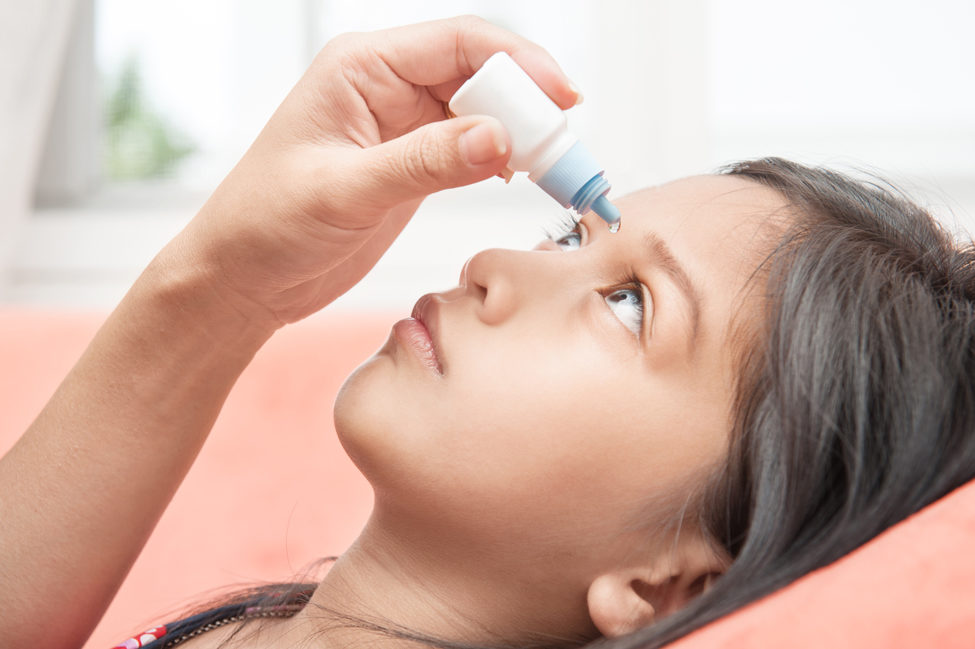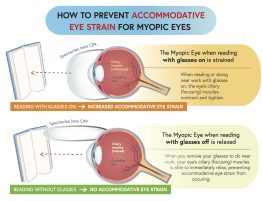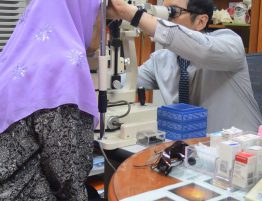
Childhood myopia management goes beyond spectacles and contact lenses!
Usually after getting spectacles prescribed for their child, many parents are lulled into a sense of false complacency, thinking they have effectively managed the problem and do not need to take any further action.
However, relying on spectacles or contact lenses without practicing good eye care to deal with a child’s myopia will only allow the problem to persist. It is like turning a blind eye (no pun intended) to a problem by denying its existence and sweeping it under the carpet.
It is important to remember that the condition of myopia still exists, and may continue to grow in severity. When the problem eventually surfaces again, it will be way too late to control and manage it.
You might be wondering, “what exactly is the problem?”
The problem is that in spite of prescribing spectacles or contact lenses for our children, their myopia will still continue to worsen and gain in prescription power, especially taking into consideration the harsh demands of their lifestyle today.
The high volume of intense near work required of them in today’s day and age is unavoidable. They are faced with long hours of schooling and studying for the majority of their day. Technology too has become an inseparable part of their lives, be it through computers, televisions, phones and tablets. One thing we can know for sure is that such a demanding lifestyle will continue to exist and even grow in intensity in the future.
As parents, we should not merely aim to restore clear vision for our children through spectacles or contact lenses, but to also work hard towards curbing and reducing the myopia progression and power respectively.
In such situations, it is suggested by eye doctors that parents turn to Atropine – a form of weekly eye drops treatment – that complements spectacle and contact lens usage in children.
What is Atropine?
Atropine is a once-a-week eye drop therapy which reduces spectacle prescription power and myopia progression in children.
Atropine is a naturally occurring medicine extracted from the “Belladona” plant. Centuries ago, it was used by women to dilate their pupils and make their eyes appear larger and more beautiful. Other than aesthetic purposes, Atropine has a wide range of use in general medicine and ophthalmology. As an eye drop, it has been used for decades to treat certain types of childhood squints and eye inflammations.
In more recent times, Atropine has been scientifically proven to slow down the progression of myopia in children and reduce myopic power.
Why do Atropine eye drops help?
Atropine has beneficial effects on myopia control through its direct effect on preventing eyeball elongation that occurs when myopia power increases. It relaxes the focusing muscles of the eye and helps prevent the child from over-squeezing his or her focusing muscles when doing prolonged near work like studying or using the computer.
This helps to curb your child’s myopic power from rapidly hitting the unhealthily high or severe levels of 600-1200 degrees or more, thus protecting your child from the risk of developing eye disorders and sight-threatening diseases associated with high prescription power when they grow up.
Many parents worldwide have adopted Atropine to treat their child’s myopic condition. Our little red dot is no exception. Locally, eye doctors have recommended it to thousands of school children for more than ten years, and so far, responses have been positive.
For the sake of your child’s future eye health, investing a little time and money is definitely worth it. Just one drop a week to your child’s eyes can play a big part in helping to reduce his or her prescription power and ensure their myopia is kept under control.
To whom is Atropine for?
Atropine therapy is suitable for all children aged six years and above with myopia exceeding 200 degrees. A point to note is that the earlier one starts therapy, the better the final outcome is in controlling myopia progression and severity.
How do I use Atropine?
Drip a single drop into each of your child’s eyes once a week, just before bedtime (preferably on a Friday of Saturday night when your child does not have a full day of school the next day.



